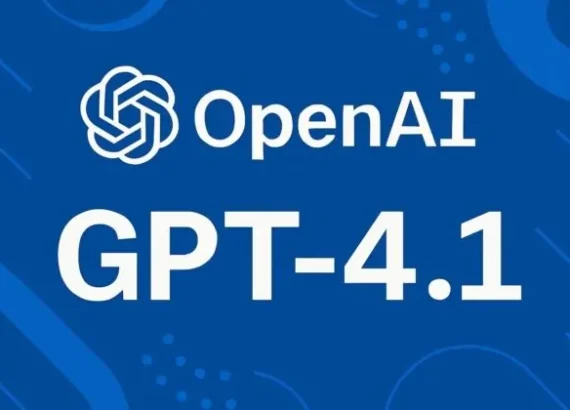Hey, readers? In a moment of unexpected humour—and subtle existential reflection—Sam Altman, the CEO of OpenAI, casually revealed something that caught the internet’s attention: users saying “please” and “thank you” to ChatGPT is costing the company tens of millions of dollars. Yes, you read that right. Your online manners are expensive. It sounds ridiculous at first glance, doesn’t it? But beneath that quirky headline lies a powerful story about how artificial intelligence, human behaviour, and real-world economics are clashing in the most unexpected ways.
This unexpected revelation raises bigger questions than one might think. How can manners cost so much? What does this say about our relationship with AI? And should we stop saying “please” to preserve OpenAI’s bank account? Or is there something worth preserving in our daily digital decency? This blog discusses everything. Let’s get going!
A Courtesy That’s Not So Free Anymore
When Altman brought this up, it wasn’t to shame users for being polite. Far from it. It was more like a lighthearted acknowledgement of a growing reality that OpenAI and other AI developers are facing: language has weight, and in this case, it’s measurable in dollars. Every time someone types a prompt into ChatGPT and adds a “please” or ends with a “thank you,” that’s extra text the model has to process. These seemingly innocent words turn into tokens—the basic units of language that the AI model interprets. Each token requires computing power to process, and computing power, as we know, doesn’t come cheap when you’re running one of the most powerful AI systems on Earth. So, when millions of users around the world add just one or two extra tokens to their prompts every day, the result is a financial avalanche that Altman suggests costs OpenAI tens of millions of dollars annually.

Understanding Tokens: The Hidden Cost of Every Word
To understand how politeness translates to profit loss, we need to get familiar with what tokens are in AI. A token is essentially a chunk of text—sometimes a word, sometimes part of a word. For example, “hello” might be one token, “thank you very much” could be four or five. AI, like ChatGPT, processes everything users input and output using tokens. The more tokens involved, the more computing power is needed, and hence, the more expensive it is to serve that particular chat. Now scale that up: millions of users, billions of messages, and tokens everywhere. Even if a single extra “please” adds only one token per prompt, you’re looking at billions of extra tokens monthly. That’s a major load on infrastructure and the budget. Imagine running the most polite customer service system in the world, and every polite customer makes your electricity bill soar. That’s OpenAI’s current reality.
Is Efficiency the Enemy of Empathy?
The discussion sparked by Altman’s comment opens up an interesting philosophical dilemma: Should we train ourselves to talk to AI-like machines for the sake of efficiency or maintain our humanity in the way we interact, even if it costs a bit more? AI, by design, doesn’t care whether you’re polite or not. It doesn’t have feelings. It won’t be hurt if you skip the pleasantries. So, in a purely functional sense, cutting the fluff makes sense. Get to the point. Say what you want. Save the computer. But there’s something deeper at play here. Many experts believe that maintaining polite behaviour with AI can actually reinforce prosocial habits in human-to-human interactions. If you start treating AI rudely just because it’s a machine, will it slowly influence your behaviour in real life? Could we be conditioning ourselves toward impatience and abrasiveness? There’s no hard data yet, but the psychological implications are worth considering. A user who’s consistently polite to AI may be more empathetic, kind, or, at the very least, mindful in the way they communicate.
The Economics of Language Models at Scale
At the core of this discussion is a bigger and arguably more important conversation about the economics of large language models. OpenAI’s business model is still evolving. While it has commercial APIs, ChatGPT Plus subscriptions, and licensing agreements (like with Microsoft), it also incurs enormous operational costs just to keep the lights on. Running GPT-4 and its siblings requires massive infrastructure—GPUs, data centres, network bandwidth, energy, and a team of engineers maintaining uptime and reliability. Unlike traditional software, which can run locally or with minimal backend interaction, AI models are constantly streaming data and using server-side computing. The cost of maintaining such an operation runs into hundreds of millions of dollars annually. So, it’s no wonder Altman is sensitive to any additional load, even if it’s rooted in basic human decency.

User Reactions: Internet Divided Over the News
When this story hit the internet, reactions were predictably all over the place. Some users responded with sarcasm: “I’m sorry, dear ChatGPT. I didn’t mean to bankrupt your creators. Please forgive me. Thank you very much.” Others saw it as a reflection of how bizarre the tech landscape has become. We’re at a point where the language we use with a machine has real-world financial consequences. That’s both hilarious and deeply symbolic of the AI era. A few pragmatists suggested that OpenAI should optimize tokenization better or offer users “efficiency mode” options where polite language gets stripped or token-discounted automatically. Then there are those who proudly declared that they’d never stop being polite, even if it costs OpenAI a fortune. “I say please and thank you to my Roomba,” one user wrote. “Of course, I’ll say it to GPT.”
Could AI Be Trained to Interpret Politeness Without Tokens?
Here’s where things get a bit more technical. Some users and engineers began speculating: could OpenAI develop a model that recognizes common polite phrases without allocating extra computing to them? Could the system be optimized to treat “please,” “thank you,” or “have a nice day” as “meta tokens”—predefined and compressed into low-cost abstractions? Theoretically, yes. Language models can be fine-tuned to recognize patterns and reduce computational overhead in specific cases. However, this kind of optimization may not be worth the complexity it introduces, especially when it only saves a few tokens per prompt. It also introduces a kind of slippery slope. Once you begin filtering or compressing user input automatically, where do you stop? And how do you ensure fairness and consistency?
Politeness as a Design Principle
Beyond cost and engineering, there’s also a design question here. If politeness is valuable for user experience, should it be encouraged or streamlined? One possible solution is to bake empathy into the system prompts. These are the invisible instructions that guide ChatGPT’s tone and behaviour before it ever receives a user prompt. If those system-level instructions always assume respectful intent, users may not feel the need to write out their manners each time. Another option could be “compact prompts” mode, where users can enable efficiency settings that let the model automatically interpret common phrases, minimizing token use. Of course, none of this replaces the deeper ethical question: Are we willing to cut corners on kindness for the sake of efficiency?

Conclusion
In conclusion, Words matter. Even the small ones. Especially at scale. Technology has hidden costs. Even in things we take for granted, like saying thank you. Kindness isn’t a waste. Even if it has a cost, it has value, too, sometimes deeper than what can be calculated in dollars. So maybe the next time you use ChatGPT, and you feel like ending your message with a simple “thank you,” don’t hold back.
You might be costing OpenAI a few extra cents, but you’re investing in a world where even the machines are spoken to with grace. Nextr Technology is the best web development agency in Delhi. We provide insightful articles to create awareness and understanding among users and professionals. To know more, contact us!
Thank you for reading
Buy Web Hosting at an affordable price: Buy Now.
If you want to build your website at an affordable price, contact www.nextr.in
Read this: Open AI Academy – An Opportunity to Avail AI Tools and Training


















